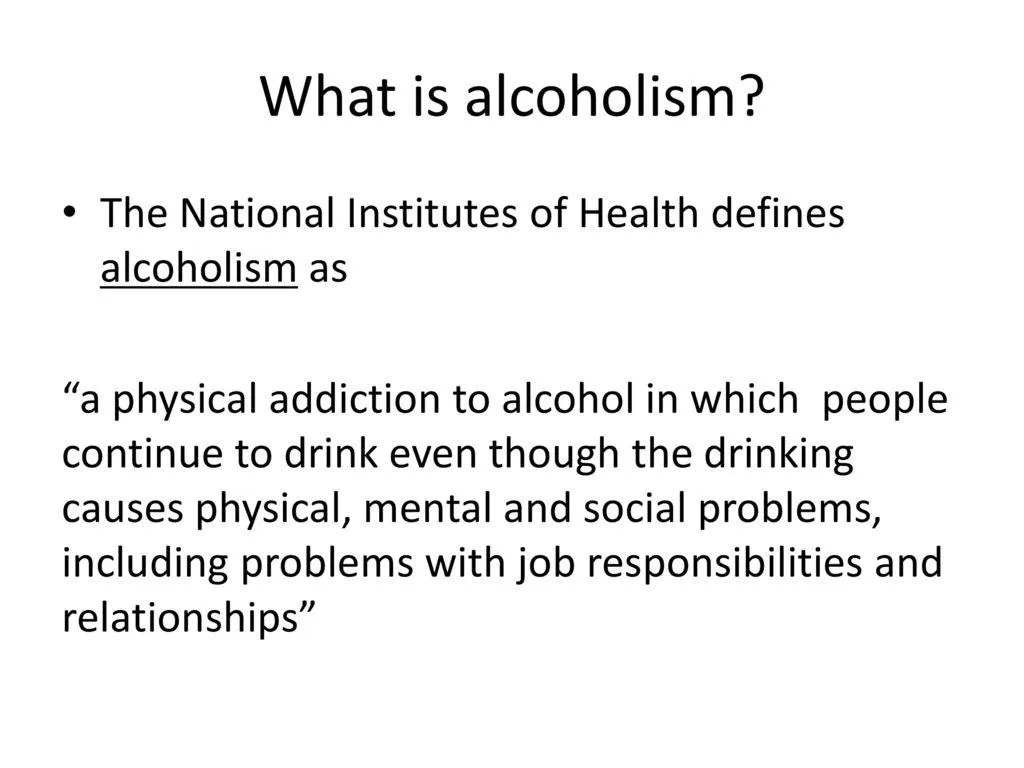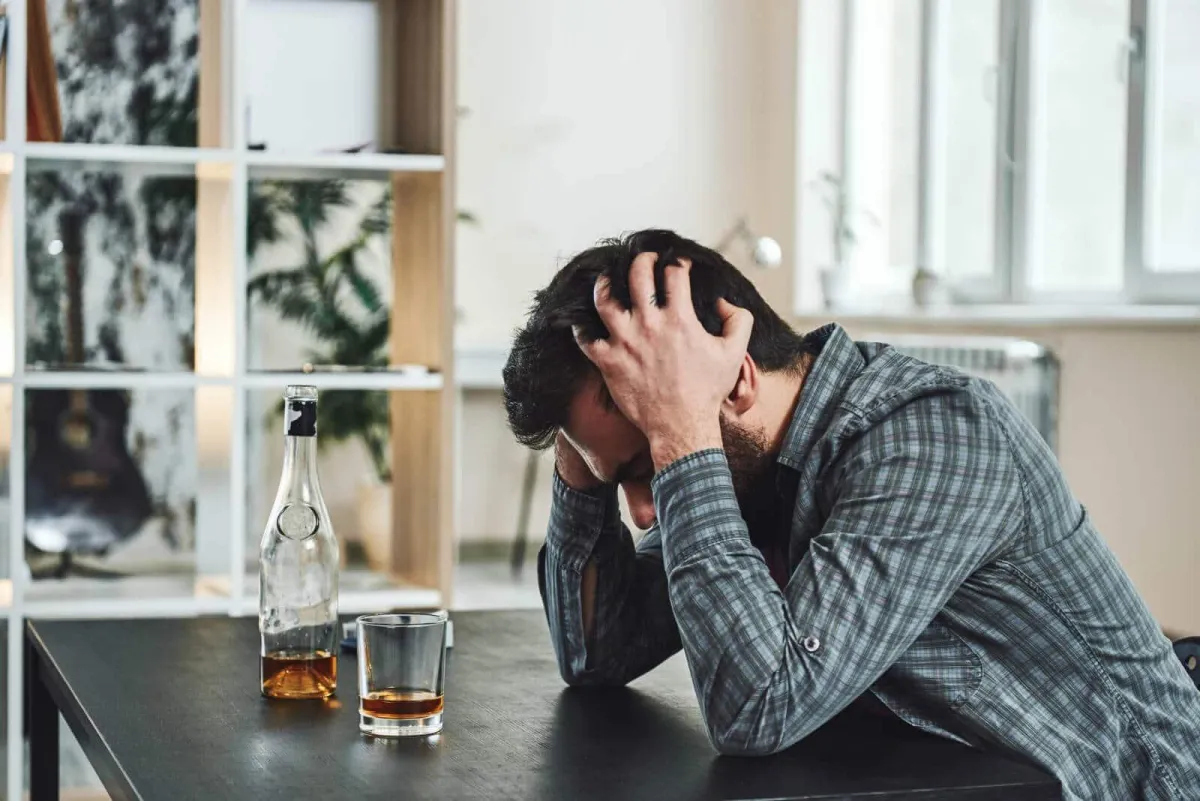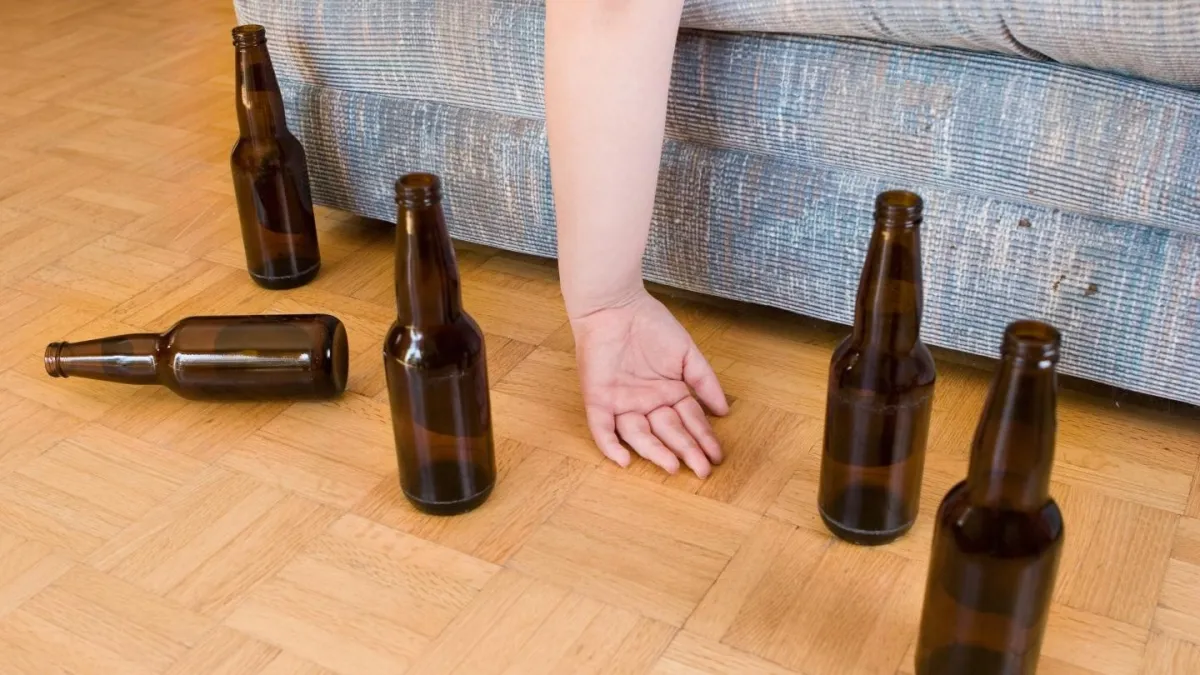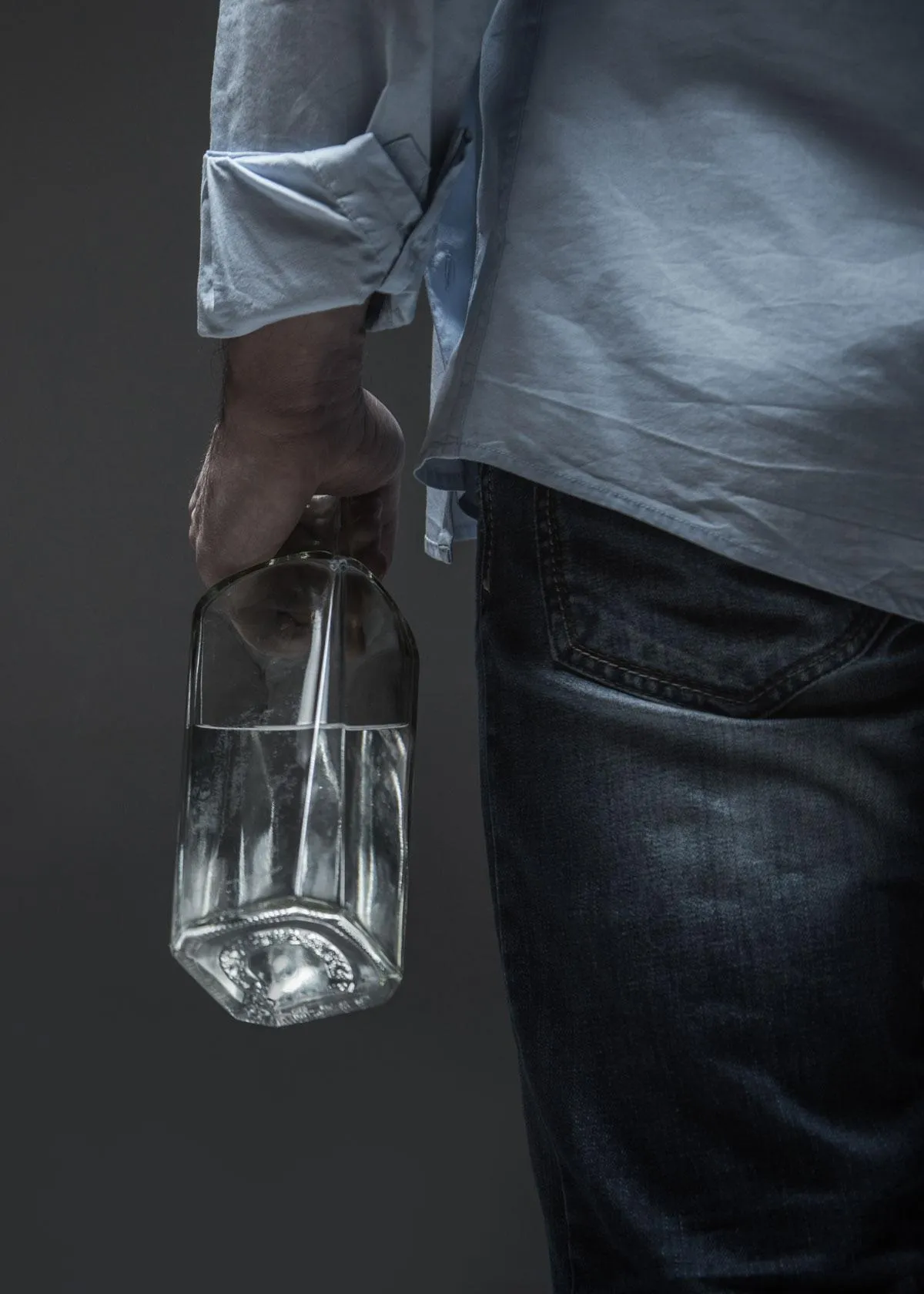What is Addiction
What Is addiction
Addiction is a complex, chronic disease that affects millions of people worldwide. While addiction can manifest in various forms, alcoholism (Alcohol Use Disorder – AUD) remains one of the most prevalent and devastating types of addiction. Defined by compulsive alcohol consumption despite negative consequences, alcoholism affects not only the individual but also their family, community, and society at large.
This research report explores what alcoholism is, its causes, symptoms, available treatments, and why relapse is common. Utilizing scientific evidence, we aim to provide a deeper understanding of addiction and how it can be effectively treated.

Take the First Step to Real Recovery - Book Your Free Consultation Today

What is Alcoholism?
Alcoholism, or Alcohol Use Disorder (AUD), is a medical condition characterized by an inability to control or stop alcohol consumption despite adverse effects on health, relationships, and daily life. The National Institute on Alcohol Abuse and Alcoholism (NIAAA) defines AUD as a chronic relapsing disorder that involves compulsive drinking, loss of control, and a negative emotional state when not drinking.
A. The Brain and Alcohol Dependence
Alcohol affects the brain’s reward system by increasing dopamine levels, creating pleasurable sensations that reinforce continued drinking. Over time, the brain adapts to alcohol, requiring more to achieve the same effects, leading to dependence and addiction. Long-term alcohol use also impacts brain regions responsible for decision-making, impulse control, and memory, making it difficult to stop drinking even when an individual wants to quit.
B. Stages of Alcohol Addiction
1. Binge/Heavy Drinking – Consuming large amounts of alcohol in a short time.
2. Increased Tolerance – Needing more alcohol to feel the same effects.
3. Dependence – Experiencing withdrawal symptoms without alcohol.
4. Losing control over drinking habits and prioritizing alcohol above all else.
Take the First Step to Real Recovery - Book Your Free Consultation Today
Causes of Alcohol Addiction
Alcohol addiction is influenced by biological, psychological, environmental, and genetic factors. Understanding these causes helps in developing effective prevention and treatment strategies.
A. Genetic and Biological Factors
Research indicates that 40-60% of the risk for alcoholism is genetic.
People with a family history of alcoholism are at a higher risk due to inherited traits that affect how the brain responds to alcohol.
Differences in brain chemistry and metabolism can also make some individuals more vulnerable to addiction.
B. Psychological Factors
Mental health disorders such as depression, anxiety, and PTSD increase the risk of alcohol addiction.
Individuals with poor coping mechanisms often turn to alcohol to numb emotional pain or stress.
C. Environmental and Social Factors
Exposure to alcohol at a young age increases the risk of developing alcoholism later in life.
Peer pressure and social acceptance of drinking can encourage excessive alcohol use.
Stressful environments, such as demanding careers or unstable family situations, can contribute to excessive drinking.

Take the First Step to Real Recovery - Book Your Free Consultation Today

Symptoms of Alcoholism
Alcoholism presents with physical, psychological, and behavioral symptoms. Recognizing these early can lead to timely intervention.
A. Physical Symptoms
High alcohol tolerance.
Withdrawal symptoms (shaking, sweating, nausea, irritability).
Liver damage, high blood pressure, and digestive issues.
B. Psychological Symptoms
Depression and anxiety.
Increased aggression or mood swings.
Memory blackouts or cognitive impairment.
C. Behavioral Symptoms
Drinking in risky situations (before work, while driving).
Prioritizing alcohol over responsibilities and relationships.
Failed attempts to quit drinking.
Take the First Step to Real Recovery - Book Your Free Consultation Today
Treatment and Cures for Alcoholism
There is no single cure for alcoholism, but evidence-based treatments can help individuals manage their addiction and achieve long-term sobriety
A. Medical Detoxification
The first step in treatment, detox helps safely remove alcohol from the system.
Medically supervised detox is essential as withdrawal symptoms can be severe (seizures, hallucinations).
B. Behavioral Therapy
Cognitive Behavioral Therapy (CBT) helps individuals change thought patterns that lead to drinking.
Motivational Interviewing (MI) increases motivation for recovery by addressing ambivalence toward quitting alcohol.
C. Medication-Assisted Treatment (MAT)
Naltrexone: Reduces cravings and the pleasurable effects of alcohol.
Disulfiram (Antabuse): Causes unpleasant reactions if alcohol is consumed.
Acamprosate: Helps restore brain balance after prolonged alcohol use.
D. Support Groups and Counseling
Alcoholics Anonymous (AA) provides peer support through a structured 12-step program.
Sober coaching offers one-on-one guidance to maintain sobriety and build a healthy lifestyle.
E. Lifestyle Changes for Long-Term Recovery
Adopting healthy routines (exercise, mindfulness, hobbies) can support long-term sobriety.
Establishing strong support systems with family and sober peers helps maintain recovery.

TESTIMONIALS
"To Thine Own Self Be True"
"Paul doesn’t just coach—he listens. He doesn’t fire you if you’re struggling or judge you for not being perfect. He helped me feel strong enough to go back to meetings and be real, without worrying about how others would judge me. That made all the difference."
- Allen - 2 yrs

"I Found Me Again"
"I was so tired of people telling me I wasn’t 'working a good program' just because I didn’t do things their way. Paul helped me see that recovery is mine to own, and that I don’t need to fit into someone else’s version of sobriety. He gave me the courage to be honest without fear."
- Luke - 4 yrs


Why Do People Relapse?
Relapse is a common challenge in recovery, with 40-60% of people experiencing relapse within their first year. Understanding the causes can help individuals prevent setbacks.
A. Triggers for Relapse
Emotional triggers (stress, depression, trauma).
Environmental triggers (bars, parties, old drinking friends).
Physical cravings caused by changes in brain chemistry.
B. How to Prevent Relapse
Identify personal triggers and develop coping strategies.
Maintain regular therapy sessions and support group involvement.
Work with a sober coach for accountability and crisis management.
Develop healthy stress-relief practices, such as exercise and meditation.
Alcohol addiction is a serious but treatable condition. Understanding the causes, symptoms, and treatment optionsempowers individuals and their families to seek help. With medical support, therapy, and long-term lifestyle changes, recovery is possible. However, relapse is part of the journey for many, and having a strong support system is crucial for maintaining sobriety.
If you or a loved one is struggling with alcoholism, seeking professional help is the first step toward a healthier, alcohol-free life.
Book Sober Coach LA
Real-Life Strategies Without the Judgement
Single Session (1 Hour): $200 - Ideal for quick, focused support or tackling immediate challenges.
4 Weekly Sessions (1 Month Package): $750 (Save $50) - Regular support to build momentum and keep you on track.
2 Sessions Per Week (8 Sessions/Month): $1,300 (Save $200) - Intensive support for those needing consistent guidance.
On-Demand Emergency Session: $200: Immediate help when cravings or challenges hit.
Confidentiality and Privacy - NDAs Available: Whether you’re a public figure, a professional, or just value your privacy, you can trust that everything discussed during our coaching sessions remains strictly confidential.
Sober companion rates available for daily, 24/7 overnight, one week, or one month. Call 310-384-8253 for rates.
Book Free 15 Min Consultation

The services offered by Sober Coach LA are not intended to diagnose, treat, cure, or prevent any disease or medical condition.